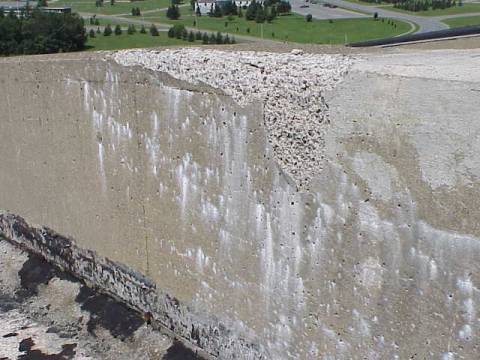What Are The Signs That Concrete Damage Is Caused By Freezing In El Cajon?

- Spalling occurs when the concrete surface peels, breaks, or chips away, often in small but sometimes large pieces. This phenomenon is commonly associated with the freeze-thaw cycle. Water enters the porous concrete, freezes, expands, and then contracts when it thaws, leading to surface deterioration.
- Freezing water expands by about 9%, exerting considerable pressure on the concrete from within. This pressure can cause the concrete to crack. Look for new cracks or notice if existing ones are widening, which might indicate that freezing water is damaging the structure.
- Scaling is the flaking or peeling away of a finished surface of concrete, revealing the aggregate beneath. It usually starts small but can grow over time with repeated freeze-thaw cycles. It’s a clear indicator that the top layer of the concrete has been compromised by the cold.
- When pieces of the concrete surface burst out, leaving holes, this is referred to as pop-outs. These are often caused by the freezing of absorbed water around aggregate particles within the concrete. If the aggregate absorbs water and then freezes, it can dislodge from the surrounding concrete.
- Freezing and thawing can lead to soil expansion and contraction beneath the concrete. This movement can push the concrete up, leading to an uneven surface known as heaving. Over time, this can cause significant structural issues.
- Although less directly a sign of structural damage, discoloration can indicate areas where moisture is affecting the concrete. Freeze-thaw cycles can exacerbate these areas, leading to more severe damage over time.
- Joint sealants are used to prevent water from entering concrete joints. However, in freezing conditions, if water does penetrate these areas and then expands upon freezing, it can lead to the sealant being pushed out or deteriorating. This can further expose the concrete to moisture and increase the risk of damage.
FAQs
How Can You Prevent Freeze-Thaw Damage To Concrete?
Prevention of freeze-thaw damage involves using air-entrained concrete that contains billions of microscopic air cells per cubic foot. These air pockets relieve internal pressure by providing tiny chambers for water to expand into when it freezes. Additionally, applying a sealer to the concrete surface can prevent water absorption.
Is It Possible To Repair Concrete Damaged By Freezing?
Yes, depending on the extent of the damage. Small cracks can be sealed to prevent further water intrusion, while more extensive damage may require removing and replacing sections of the concrete. Consulting with a structural engineer is advisable for significant damage.
Are Certain Types Of Concrete More Resistant To Freeze-Thaw Cycles?
Yes, concrete that is properly mixed with air-entraining agents and has a low water-to-cement ratio tends to be more resistant to the effects of freeze-thaw cycles. Proper curing and the addition of appropriate admixtures can also enhance resistance.
Conclusion
Concrete damage during freezing conditions is a serious concern that can lead to expensive and extensive repairs if not addressed promptly. By recognizing the signs of freeze-thaw damage such as spalling, cracking, scaling, pop-outs, heaving, discoloration, and deteriorating joint sealant, homeowners and property managers can take early action to mitigate the effects. Regular maintenance and winterization of concrete structures are crucial in regions where the freeze-thaw cycle is a regular occurrence. With proper care and early intervention, the integrity of concrete can be preserved, prolonging its lifespan and maintaining its structural soundness. For more information, contact Concrete Contractor El Cajon at (619) 473-4433.